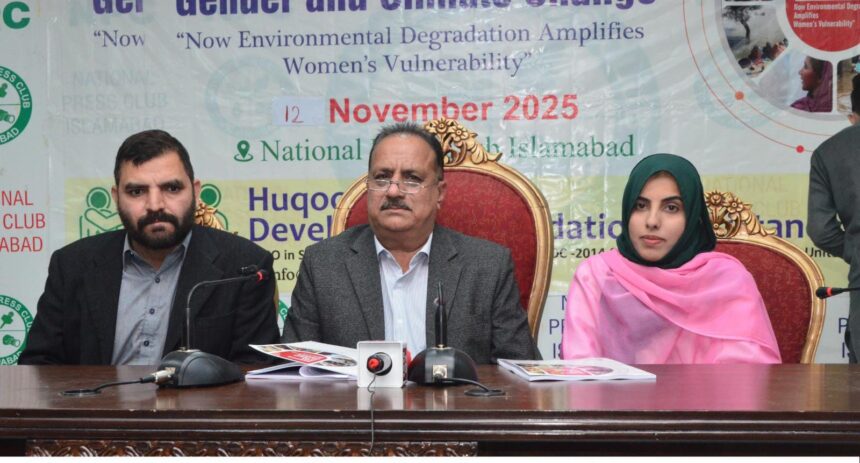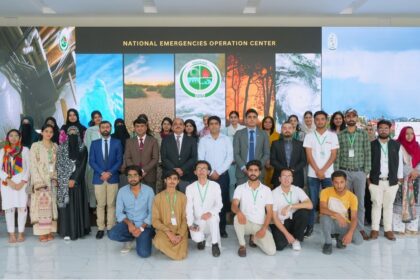Climate Change Poses Harsher Challenges for Women Than Men, Says HED Foundation President Syed Muhammad Ashfaq
Islamabad — President of Huquq-ul-Ibad Development Foundation (HEDF), Syed Muhammad Ashfaq, has said that women face significantly harsher challenges than men as a result of climate change, calling for gender-sensitive policies and national strategies to address the issue. He was presenting a report on the gendered impacts of climate change at a press conference held at the National Press Club, Islamabad, alongside Hafiz Muhammad Asghar and Sapna Ajmal.
Ashfaq emphasized that climate change affects citizens unevenly, and that women — particularly those in rural and underdeveloped regions — bear the brunt of its social, economic, and physical consequences. He said that despite limited resources, this study is the first of its kind in Pakistan, combining qualitative and quantitative methods to assess the gender impacts of climate change. The survey covered all four provinces — Punjab, Sindh, Khyber Pakhtunkhwa, and Balochistan — with participation from over 800 respondents.
The report’s findings reveal alarming trends highlighting the severity of the climate crisis for women. Nationally, 28.5% of women identified climate change as their top concern, with the issue most critical in Balochistan, where 66.7% of women ranked it as their primary worry. Due to poor infrastructure and weak government response, 34.1% of women reported walking long distances daily to fetch water for their homes, increasing their workload and physical fatigue.
Additionally, 25.1% of women confirmed a rise in household and work responsibilities due to climate-related disruptions. The resulting physical and psychological stress was recognized by 32% of respondents as one of their leading personal challenges linked to climate change. The report further found that 58% of women across Pakistan have lost income opportunities due to crop damage and agricultural decline triggered by climate disasters, while 30% cited financial constraints as the biggest obstacle in preparing for such emergencies.
The research also highlighted the role of traditional gender norms in intensifying women’s vulnerability. Forty percent of women stated that cultural restrictions prevent them from participating in climate-related decision-making. Repeated exposure to disasters and the burden of rebuilding homes have also led to mental health issues among women, including depression, anxiety, and chronic fatigue.
The report presented several key recommendations, urging policymakers to:
-
Invest in gender-responsive water infrastructure to ensure women’s access to safe and nearby water sources.
-
Implement 50% women’s representation in all climate and disaster management committees.
-
Expand mental health and climate-related health services in disaster-prone areas.
-
Strengthen legal frameworks to prevent gender-based violence in post-disaster settings.
-
Launch climate awareness programs and economic empowerment initiatives to build women’s resilience and self-sufficiency.
Ashfaq concluded that women must be at the center of Pakistan’s climate adaptation strategy, stressing that no sustainable solution is possible without their inclusion and leadership.











